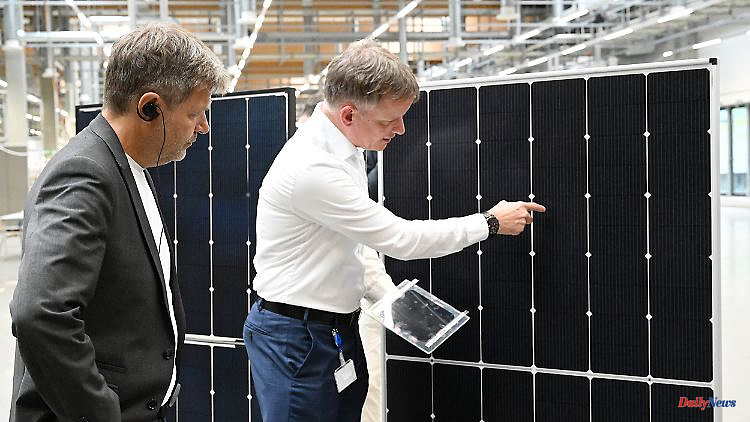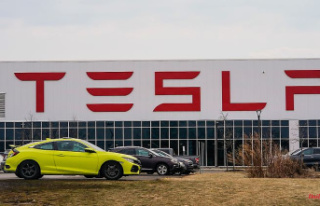China has the solar industry firmly in its grip - 80 percent of the world's production capacities are located there. Dependence on Beijing poses a massive problem for the German energy transition. Industry representatives sound the alarm in a fire letter.
Economics Minister Robert Habeck wants to supply 80 percent of electricity consumption from renewable energies by 2030. The solar industry in particular finds this ambitious. Because the industry is facing a massive problem: China has the production capacities for photovoltaic systems firmly under control. As the "Handelsblatt" reports, companies in the solar industry are therefore sounding the alarm.
In a letter to the Federal Ministry of Economics, 24 companies in the sector have drawn up a plan to revitalize the German solar industry, according to the newspaper. They are demanding more support from the state in order to achieve the ambitious goals for the expansion of renewable energies.
Currently, 80 percent of the global production capacity for solar energy is in China - compared to just one percent in Germany. "The dependency resulting from this concentration harbors risks for the energy transition in Germany and Europe," the senders warn. Among them are big energy companies like Eon, but also smaller companies like Enpal, Pelion and Norsun.
For a long time, Germany was a pioneer in the field of photovoltaics. However, China has massively expanded the solar industry in the last 15 years. In Europe, for example, only solar panels with a capacity of eight gigawatts were produced in 2021. China now has capacities for up to 300 gigawatts. "There is a high degree of dependency on China that cannot be denied. And that is significantly greater than the dependency on gas from Russia," said a high-ranking manager from the solar industry to the "Handelsblatt".
Inequality threatens to worsen further. Last December, leaders in Beijing proposed stricter export regulations - including protectionist restrictions on the solar industry.
Some German companies emigrated to Beijing when subsidies for the photovoltaic industry in Germany were cut. Now they could be affected by these new export restrictions. "But we still have the knowledge and can bring it back here," says the boss of the module manufacturer Solarwatt, Detlef Neuhaus, in an interview with the "Handelsblatt". However, this is not possible without political support.
The Federal Republic needs the capacities. If Germany wants to achieve its energy goals, 22 gigawatts of solar energy must be added annually from 2026. This corresponds to a tripling of the current expansion. Production capacities are also to be expanded at European level - according to the EU Commission to 30 gigawatts by 2025.
The rapid development of solar energy will cost money. The estimates range from 400 million to one billion euros per gigawatt of production capacity, reports the "Handelsblatt". Thus, the EU plans would cost at least 25 billion euros. But that is only a "fraction of what Europe has spent on securing the gas supply in the last twelve months," emphasizes Meyer Burger boss Gunter Erfurt in an interview with the "Handelsblatt".
In the letter, the companies therefore call for "plannable financial support in relation to investments, for example via the state development bank KfW". The 24 signatories from the solar industry would even be willing to pay a surcharge for European products for the time being. "Instead of just talking about how dependent we are, we finally have to take action," says Solarwatt boss Neuhaus to the "Handelsblatt".












